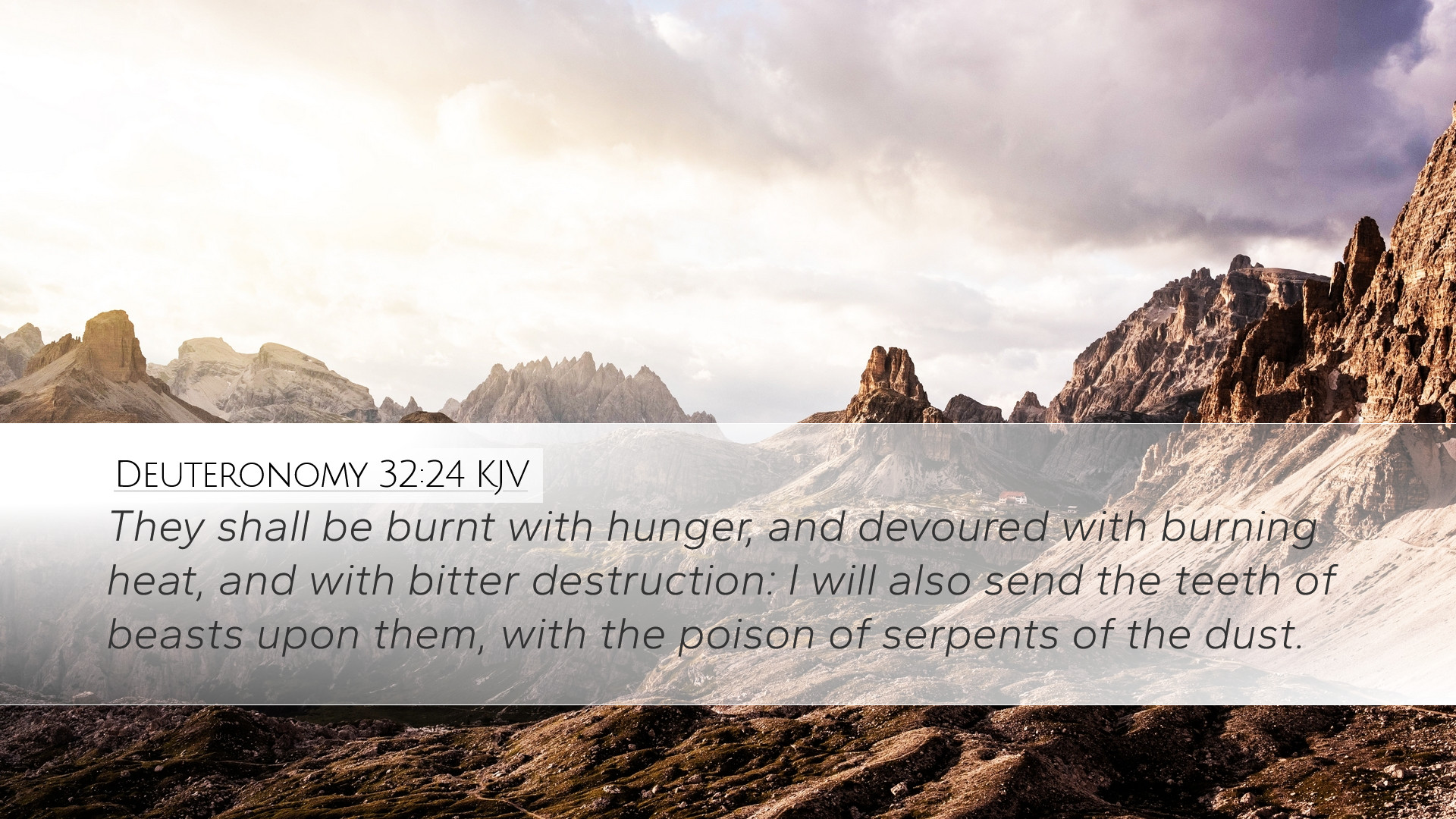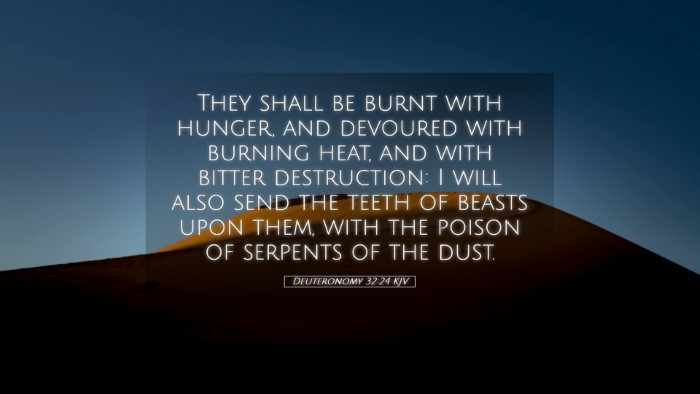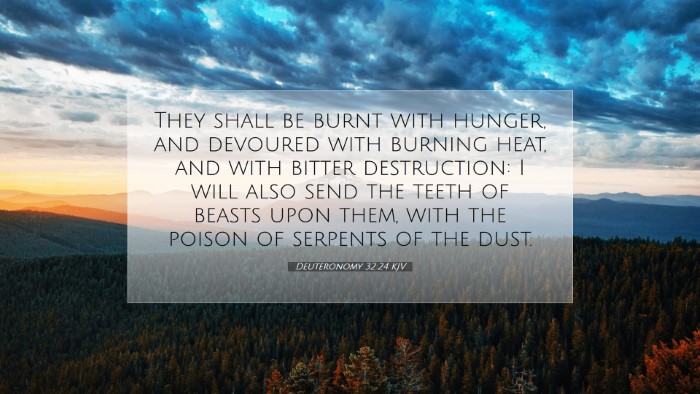Commentary on Deuteronomy 32:24
Deuteronomy 32:24 states:
"They shall be burnt with hunger, and devoured with burning heat and with bitter destruction: I will also send the teeth of beasts upon them, with the poison of serpents of the dust."
This verse is part of the Song of Moses, a significant poetic and prophetic declaration that encapsulates God's relationship with Israel and the consequences of their rebellion. The verse itself reflects themes of divine retribution, judgment, and the powerful imagery of nature as instruments of God's will.
Insights from Matthew Henry
Divine Judgment: Henry emphasizes that this verse portrays a nation suffering the consequences of its transgressions. The "burnt with hunger" indicates a spiritual famine that often accompanies God's withdrawal of blessings. This serves to remind the people of Israel that their sustenance is dependent on their relationship with God.
Severity of Punishment: The reference to "devoured with burning heat and with bitter destruction" suggests that their judgment will not only come in forms that are biologically harmful but also spiritually devastating. The use of fire symbolizes a purifying yet painful process, illustrating how God’s judgments can lead to a realization of the need for repentance.
Nature as God's Tool: Henry notes that the "teeth of beasts" and "poison of serpents" symbolize the dangers that surround the Israelites, overlooked by those who stray from God's path. The beasts represent both swift destruction and uncontainable violence, while serpents reflect subtler threats that deceive and lead astray.
Insights from Albert Barnes
Symbolism of Hunger: Barnes points out that the hunger discussed in this verse is not merely physical but fundamentally spiritual. When God's people fail to obey Him, He allows a famine that starves their souls—creating a longing for His presence and acknowledgment of their need for His mercy. This illustrates the importance of nurturing a continuous connection with God through worship and obedience.
The Role of God's Instruments: Barnes further explains that the beasts and serpents signify particular agents of judgment. Notably, the beasts can be seen as nations or circumstances that will attack Israel, while serpents connote treachery and betrayal that come from within their ranks. This duality speaks to the various forms of divine retribution.
Insights from Adam Clarke
Imagery and Metaphor: Clarke details the use of vivid metaphor in this passage, suggesting that each element—the fire, hunger, beasts, and serpents—serve as metaphors for the comprehensive suffering that befalls one who has turned away from God. His imagery invites the reader to visualize the tangible outcomes of spiritual abandonment.
Theological Implications: Clarke emphasizes that the fundamental message in this verse is about God's justice and holiness. He passionately articulates the belief that God's anger will cause suffering to the unfaithful, thereby showcasing His righteousness in fulfilling covenantal consequences. However, he also notes that such judgment is always accompanied by the potential for grace and restoration for those who repent.
Theological Themes
- Judgment and Mercy: The tension between judgment and mercy is highlighted throughout this passage, where the punishment for sin ought to draw people back to repentance.
- Spiritual Famine: An examination of the correlation between physical conditions and spiritual states, emphasizing that neglecting God leads to both types of desolation.
- Nature as God's Agency: The consideration of how God uses natural elements as instruments of His will to lead His people toward a realization of sin and a subsequent return to Him.
Conclusion
In summary, Deuteronomy 32:24 encapsulates the essence of what it means to live in the accountability of God’s covenant. Through the insights provided by Matthew Henry, Albert Barnes, and Adam Clarke, we can grasp the serious implications of rebellion against God and the severe yet just outcomes of such actions. For pastors, theologians, and students of the Word, this passage invites deep reflection on God's character and the continual pursuit of faithfulness, ensuring that one does not fall into the snares of spiritual neglect.


